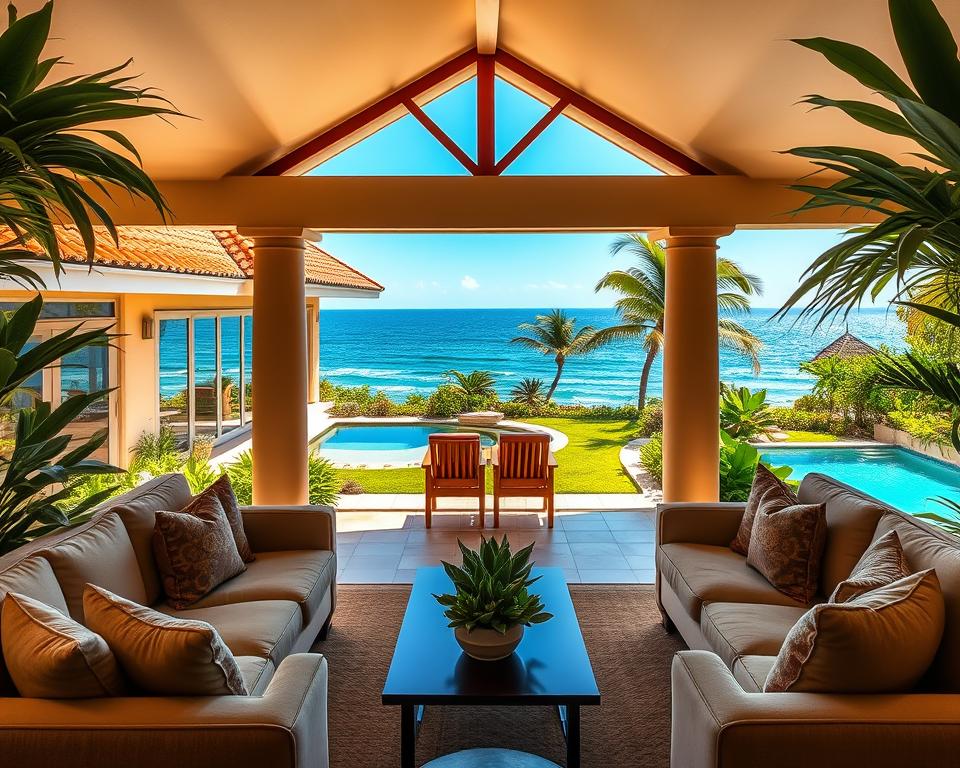How to Attract Buyers in Costa Rica: Proven Strategies
With over 20 years of expertise in Costa Rica’s real estate market, Gap Real Estate (Grupo Gap LLC SRL) has witnessed significant growth, driven by foreign investment increasing by more than 30 percent over the past three years.
Costa Rica’s unique blend of natural beauty, political stability, and investor-friendly property laws makes it an attractive destination for international buyers. To succeed in this competitive market, sellers must employ strategic approaches that align with current market conditions and buyer expectations.
Our comprehensive guide explores proven strategies for property sellers, from market analysis to closing techniques, helping you maximize your property’s appeal and achieve optimal selling prices.
Understanding the Costa Rican Real Estate Market
With its unique blend of natural beauty and investor-friendly laws, Costa Rica has become a hotspot for international property buyers. We will explore the current state of the Costa Rican real estate market, including trends, buyer demographics, and preferences.
Current Market Trends and Conditions
The Costa Rican real estate market is experiencing a significant shift, driven by an influx of foreign investment and a growing expat community. We are seeing a rise in demand for properties in tourist areas, particularly along the Pacific coast. The market is characterized by a mix of luxury developments and more affordable options, catering to a wide range of buyers. As a result, property prices are varying, with some areas experiencing rapid appreciation.

Buyer Demographics and Preferences
Costa Rica attracts a diverse range of international buyers, primarily from the United States, Canada, and Europe. We have identified several key buyer demographics, including retirees seeking comfort and accessibility to healthcare, investment-focused buyers looking for rental income, and remote workers prioritizing reliable internet connectivity. Buyers are also drawn to eco-friendly homes and sustainable communities, reflecting a growing environmental consciousness. Understanding these demographics and preferences is crucial for sellers to effectively target their marketing efforts.
By recognizing the diverse needs and preferences of buyers in Costa Rica, we can better navigate the complexities of the local real estate market and identify opportunities for growth and investment.
Preparing Your Property for the Costa Rican Market
When selling a property in Costa Rica, preparation is key to attracting potential buyers. At Gap Real Estate, we deliver seamless transactions through expert guidance, clear communication, and relentless dedication to clients’ goals.
Property Presentation and Staging
Effective property presentation is crucial in capturing the attention of potential buyers. We recommend staging your property to highlight its best features, making it more appealing to those looking for a home in Costa Rica. Ensuring your property is well-maintained and visually appealing can significantly impact its saleability.

Addressing Maintenance and Repairs
Costa Rica’s tropical climate can accelerate wear and tear on properties, making proactive maintenance essential. We advise addressing structural issues, water damage, and pest control before listing your property, as these are common concerns for buyers. Ensuring your property’s electrical systems and plumbing are up to date is also vital, as these are frequent points of negotiation during the due diligence process.
- Document all maintenance and improvements with receipts and warranties to provide buyers with confidence in the property’s condition.
- Consider obtaining pre-listing inspections to identify and address potential issues before they become obstacles during buyer inspections.
- Ensure all property taxes are current and documented, as tax compliance is a critical component of the due diligence process.
By focusing on these aspects, you can enhance your property’s appeal and facilitate a smoother transaction.
Setting the Right Price: A Critical Strategy
The key to a successful sale in Costa Rica lies in determining an accurate and competitive property price. Sellers must consider various factors to attract potential buyers in the local market.
Researching Comparable Properties
To set a competitive price, it’s essential to research comparable properties in Costa Rica. This involves analyzing recent sales of similar properties in the same area to understand the current market trends. By doing so, sellers can gauge the market value of their property and price it accordingly.
Understanding Property Valuation in Costa Rica
Property valuation in Costa Rica involves assessing various factors, including the property’s condition, location, and amenities. Understanding these factors helps sellers determine a fair and competitive price for their property. It’s also crucial to consider the local real estate market conditions and how they impact property values.

Avoiding the “First Offer Syndrome”
The “first offer syndrome” is a common pitfall for sellers in Costa Rica, where they reject initial offers in anticipation of better ones. However, this can lead to a property staying on the market for too long. We advise sellers to consider the first offer seriously, as it often comes from motivated and qualified buyers. Evaluating the overall terms of the offer, not just the price, is also crucial.
By understanding the local market, researching comparable properties, and being open to reasonable offers, sellers can successfully navigate the complexities of property pricing in Costa Rica.
How to Attract Buyers in Costa Rica Effectively
With its rich biodiversity and varied landscapes, Costa Rica offers a unique real estate market that requires a thoughtful strategy to attract buyers. At Gap Real Estate, we have 20+ years of insight into Costa Rica’s market, enabling us to provide expert guidance on how to effectively attract buyers.
Targeting International vs. Local Buyers
Understanding whether your property will appeal more to international or local buyers is crucial. International buyers often look for properties with high rental income potential, such as beachfront properties or luxury villas. Local buyers, on the other hand, may prioritize properties with modern amenities or those located near urban centers.
Costa Rica’s diverse property types cater to different lifestyles and investment goals, making it essential to tailor your marketing strategy to your target audience.
Highlighting Unique Selling Points
Every Costa Rican property has unique selling points that can attract specific buyer segments when properly highlighted. For instance, properties with ocean, mountain, or volcano views are highly sought after. Sustainable and eco-friendly features also resonate strongly with many Costa Rica property buyers.
To attract buyers, we recommend creating a comprehensive list of your property’s unique features and strategically featuring them in all marketing materials. This could include highlighting outdoor living spaces, proximity to amenities, or architectural uniqueness.
Digital Marketing Strategies for Costa Rican Properties
To attract potential buyers, Costa Rican property sellers must leverage effective digital marketing strategies. In today’s competitive real estate market, having a robust online presence is crucial for success.
Digital marketing has revolutionized the way properties are marketed in Costa Rica, offering unprecedented reach to both international and local buyers. At Gap Real Estate, we understand the importance of a comprehensive digital marketing strategy in showcasing your property to potential buyers.
Professional Photography and Virtual Tours
High-quality visual content is essential for capturing the attention of potential buyers. Professional photography that captures your property in optimal natural lighting can dramatically increase buyer interest and inquiry rates. Additionally, virtual tours and video walkthroughs have become essential tools, especially for international buyers who may make initial decisions remotely.
Leveraging Social Media and Real Estate Platforms
Strategic use of social media platforms like Instagram, Facebook, and YouTube can showcase your property’s visual appeal and lifestyle benefits to targeted audiences. International real estate platforms like Zillow International and Realtor.com Global provide essential visibility to qualified buyers. By leveraging these digital channels, we can maximize exposure to diverse buyer segments and attract potential buyers in Costa Rica’s competitive real estate market.
At Gap Real Estate, we offer end-to-end support, handling complexities so clients don’t have to. Our team of experts understands the importance of digital marketing analytics in optimizing campaigns based on performance data and buyer engagement.
Working with a Professional Real Estate Agent
The intricacies of Costa Rica’s property laws and market trends underscore the importance of partnering with a seasoned real estate agent. A knowledgeable and reputable agent will not only have a deep understanding of local market conditions but also the ability to negotiate effectively on your behalf.
Benefits of Local Expertise
Local expertise is invaluable when navigating Costa Rica’s real estate market. An agent with extensive knowledge of the area can provide insights into market trends, help you avoid potential pitfalls, and ensure that your property is priced competitively. Gap Real Estate, with over two decades of coast-to-coast experience, simplifies buying, selling, or investing in Costa Rica.
What to Look for in a Costa Rican Real Estate Agent
When selecting a real estate agent in Costa Rica, consider the following key factors:
- Verifiable experience in your specific region and property type
- Affiliation with recognized real estate associations like the Costa Rica Global Association of REALTORS® (CRGAR)
- Effective communication and responsiveness
- A strong online presence and utilization of modern marketing tools
- Transparency about commission structures and marketing plans
- Technical knowledge of Costa Rican property laws and transaction procedures
Legal Considerations When Selling Property
When selling property in Costa Rica, understanding the legal landscape is crucial for a smooth transaction. The country’s legal framework is designed to protect both buyers and sellers, and being aware of the relevant laws and regulations can help sellers navigate the process with confidence.
Understanding Property Laws and Regulations
Costa Rica’s property laws are governed by various statutes and regulations. Key aspects include the property title (escritura) registered with the National Registry (Registro Nacional), which establishes ownership, and the requirement for a registered survey map (plano catastrado) that accurately reflects property boundaries. Understanding these laws is essential for a successful transaction.
Required Documentation for Property Sales
Proper documentation is the foundation of legally sound property transactions in Costa Rica. Several key documents are required for successful closings, including:
- The property title (escritura) is registered with the National Registry.
- A registered survey map (plano catastrado) that accurately reflects property boundaries.
- Tax clearance certificates demonstrating that all property taxes and other applicable taxes are current.
- Corporate documents, if the property is held by a corporation.
- Utility statements showing the current status of services.
- HOA documentation for properties in planned communities or condominiums.
Working with a notary public ensures that all documentation meets legal requirements for registration and transfer. A Sale and Purchase Agreement outlines the terms of the transaction, and a transfer deed is executed before a Notary Public to complete the property transfer.

Negotiation Strategies for Costa Rican Property Sales
Costa Rica’s unique real estate market demands a thoughtful and informed approach to negotiation to ensure a smooth transaction. When selling property in this vibrant market, understanding the intricacies of negotiation can significantly impact the outcome of the sale.
Cultural Aspects of Negotiation in Costa Rica
In Costa Rica, cultural nuances play a significant role in negotiations. Building rapport and trust with potential buyers is crucial. We recommend being open to dialogue and showing a willingness to understand the buyer’s needs and concerns. This approach not only fosters a positive negotiation environment but also increases the likelihood of reaching a mutually beneficial agreement.
Understanding the local culture and being aware of the importance of personal relationships can give sellers an edge in negotiations.
Handling Counteroffers Effectively
Handling counteroffers is a critical aspect of the negotiation process. It’s customary for buyers to start with an offer below the asking price, allowing room for negotiation. Providing a clear justification for your counteroffer can strengthen your position and lead to a more favorable agreement.
- View counteroffers as opportunities for dialogue rather than rejections.
- Maintain flexibility on non-price elements to build goodwill.
- Document all counteroffers in writing to prevent misunderstandings.
By adopting these strategies, sellers can navigate the negotiation process more effectively, ultimately achieving a better sale price for their Costa Rican property.
Facilitating the Due Diligence Process
A well-facilitated due diligence process can make all the difference in ensuring a successful property sale in Costa Rica. Conducting due diligence is a critical step in real estate transactions, involving various checks to ensure the property’s legal and financial integrity.
Property Inspections and Title Searches
One crucial aspect of due diligence is the property inspection and title search. In Costa Rica, the central land registry provides confirmation of property title and highlights any restrictions. Ensuring that property titles are free of legal disputes and encumbrances is essential. A title search is vital to verify the seller’s ownership and identify any potential issues. Buyers should also request a contingency to review the homeowners’ association (HOA) financials to ensure the community’s financial health.
Addressing Buyer Concerns Proactively
Proactively addressing common buyer concerns can significantly reduce transaction friction. Sellers can demonstrate integrity by disclosing known property issues, providing documentation of property improvements and maintenance history, and clarifying boundary lines. Preparing answers to frequently asked questions about the property, neighborhood, and living conditions can also address buyer concerns efficiently. Introducing buyers to neighbors, HOA representatives, or property managers can further alleviate concerns about community dynamics and ongoing property management.
By maintaining open communication throughout the due diligence process, sellers can experience fewer last-minute negotiation requests and smoother closings. At Gap Real Estate, we deliver seamless transactions through expert guidance, clear communication, and relentless dedication to our clients’ goals.
Closing the Deal: From Offer to Sale
The final stages of selling a property in Costa Rica require meticulous planning to ensure a smooth closing process. As you near the closing phase, thorough preparation is key to ensuring a successful transaction. In Costa Rica, most closings occur within a due diligence period of 30 to 60 days, beginning after the seller accepts the offer.
Setting Up Secure Escrow Accounts
One crucial step in the closing process is setting up a secure escrow account. This ensures that the buyer’s funds are held securely until all conditions of the sale are met. Working with a reputable escrow service is vital to facilitate a smooth transaction. We recommend creating a comprehensive checklist that includes all required documents, payments, and actions needed from both buyer and seller.
Coordinating with all parties involved, including attorneys, notaries, real estate agents, and escrow officers, ensures everyone is prepared for the closing date. For remote closings, which are common with international buyers, ensuring proper power of attorney documentation is in place well in advance is critical.
Preparing for a Smooth Closing Process
To avoid delays and complications, sellers should prepare for the closing process by scheduling a pre-closing walkthrough of the property. This ensures that the property’s condition matches expectations and that any agreed-upon repairs have been completed. Utility transfer arrangements should be made in advance, including final readings and account transfers for services like electricity, water, and internet.
Property tax prorations should be calculated accurately, with clear documentation of payments made and amounts due at closing. Understanding that Costa Rican closings typically take place at a notary’s office, with the deed signed and then registered with the National Registry, helps set proper expectations. Planning for post-closing matters like key transfers and property management transitions prevents confusion after the transaction is complete.
Overcoming Common Challenges in the Costa Rican Market
The Costa Rican property market presents unique obstacles that require careful consideration. In Costa Rica’s diverse market, buyer interest can be cyclical and seasonal, making it crucial for sellers to time their property sale strategically.
Dealing with Seasonal Market Fluctuations
Rejecting an offer during peak season may mean waiting months for similar interest to return. We recommend being flexible with your selling timeline to capitalize on peak periods. Understanding these fluctuations helps sellers make informed decisions.
Navigating Language and Cultural Barriers
Language and cultural differences present unique challenges in Costa Rica’s international real estate market. Working with bilingual professionals ensures clear communication with both locals and international buyers. We also recommend having documents available in both Spanish and English to facilitate smoother transactions.
Conclusion
With the right preparation and support, sellers can navigate Costa Rica’s real estate market effectively. Successfully attracting buyers requires a strategic approach combining local knowledge, effective presentation, and targeted marketing. Gap Real Estate simplifies buying, selling, or investing in Costa Rica with over two decades of coast-to-coast experience. Their deep local knowledge and end-to-end support ensure clarity and confidence. By understanding the unique aspects of Costa Rica’s property market and working with experienced professionals, sellers can achieve their financial and personal goals.




